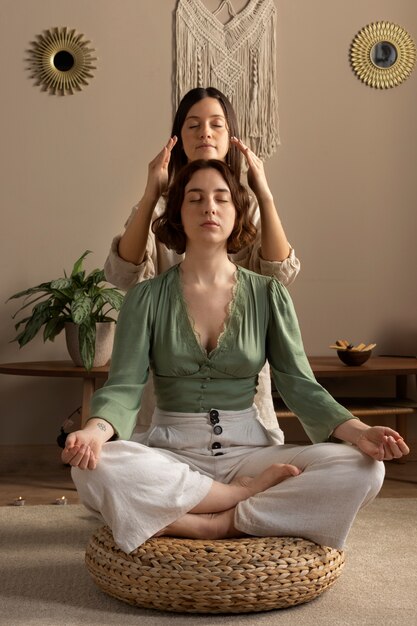

You’re probably aware of all the great things meditation can do for you. It’s beneficial for mental health, fights off depression and anxiety, boosts happiness and intelligence, keeps your brain young, and even makes you physically healthier. However, knowing all this doesn’t necessarily make it any easier to stick to a daily meditation routine. You might do well for a few days, then miss a day, or even find that weeks have gone by without meditating.
Not meditating is a deeply ingrained habit and becoming a regular meditator means creating a new one, which can be challenging. Here are seven tips to help you establish a consistent meditation practice:
1. Start Small: One common mistake is aiming for long meditation sessions, like 20, 30, or 40 minutes. While that’s admirable, if you’re too busy, it’s easy to skip a session and slip back into old habits. Start by meditating for just five minutes a day. Once you’re in the habit, you can gradually increase the duration.
2. Reframe Your Day: Think of your meditation in the context of your waking hours rather than a strict 24-hour midnight-to-midnight frame. This way, even if you get home late, you can fit in a quick meditation session before you sleep.
3. Set Reminders: Initially, you’ll need reminders to meditate. Use a simple, visible paper calendar, ideally placed in a high-traffic area like your refrigerator door. Mark each day you meditate with a large check mark. Over time, you’ll create a visual chain that you won’t want to break.
4. Use a Mantra: If you see yourself as someone who struggles to meditate regularly, change that self-image with a mantra like, “I meditate every day. It’s just what I do.” Repeat this to yourself frequently to embed the habit.
5. Opt for Guided Meditations: Especially helpful for beginners, guided meditations can provide structure and make your sessions more enjoyable. Even experienced meditators can benefit from them by learning new techniques and perspectives.
6. Any Meditation Is Good Meditation: Even if your mind wanders, the act of sitting down to meditate is what counts. There are no bad sessions – only missed ones.
7. Reward Yourself: Associate positive feelings with your practice. At the end of a session, congratulate yourself. Physically gesture, like raising your arms in victory, to reinforce the habit with good vibes. Then mark your calendar and feel proud of your progress.
By incorporating these steps, you can gradually build a robust daily meditation habit that enhances your life. These tips are just a start, and you can find more detailed guidance in courses like “Get Your Sit Together” offered by Wildmind.
Good luck on your meditation journey!